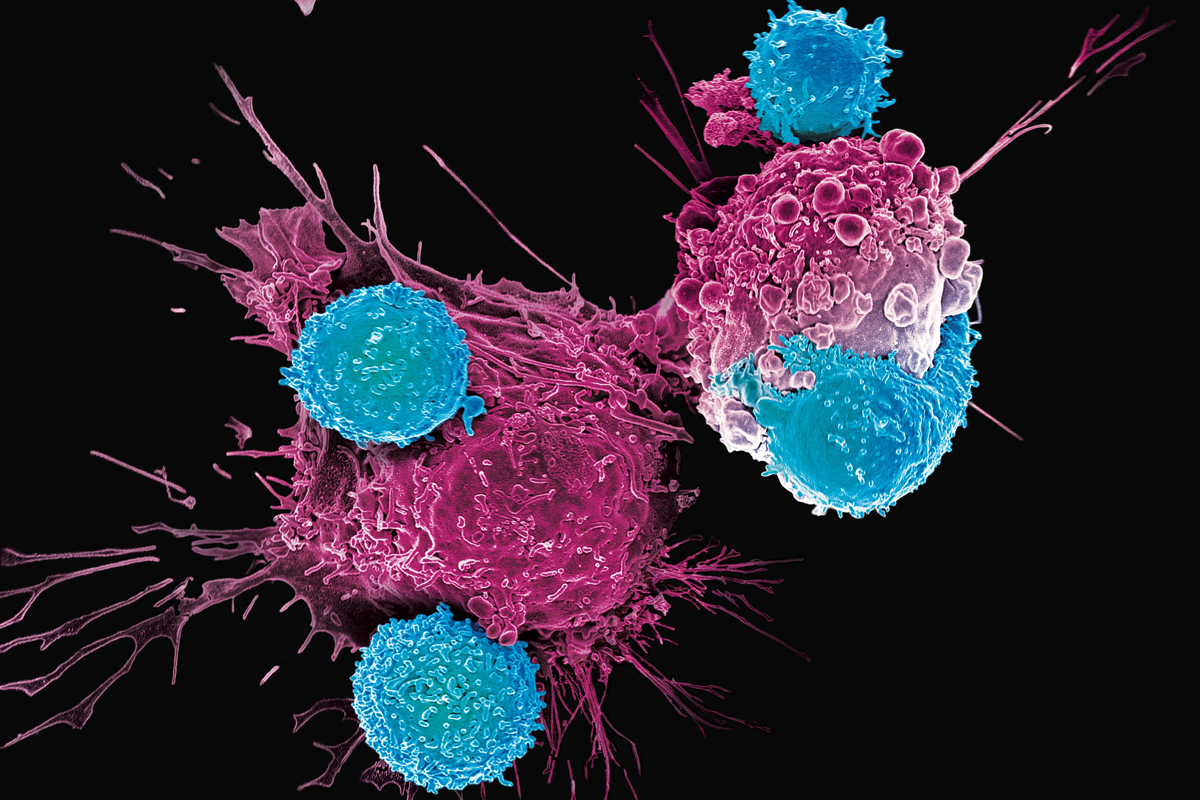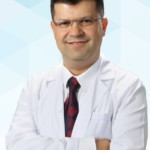-
 Medical articles
CAR T therapy: helps treat cancer when other methods fail
Medical articles
CAR T therapy: helps treat cancer when other methods fail
-
 Medical articles
Cancer incidence is steadily increasing: disappointing WHO forecast for 2050
Medical articles
Cancer incidence is steadily increasing: disappointing WHO forecast for 2050
-
 Medical articles
Stem cells bring hope to millions of people suffering from hearing loss
Medical articles
Stem cells bring hope to millions of people suffering from hearing loss
-
 Medical articles
TOP 10 clinics for oncology treatment 2023
Medical articles
TOP 10 clinics for oncology treatment 2023
-
 Medical articles
New methods for diagnosing cancer diseases
Medical articles
New methods for diagnosing cancer diseases
All news
Neurosurgery clinics in Turkey
Diverse clinics in Turkey are equipped with advanced equipment for performing brain and spinal cord surgeries. The treatment is carried out according to American and European standards, which are based on many years of research. International patients are operated on by doctors with many years of professional qualification.
Most of the Turkish hospitals are accredited by the most reputable commissions: JCI and ISO. This confirms the great level of quality of medical care, on a par with the world’s leading clinics.
MedTour patients recommend clinics for the treatment of neurosurgical in Turkey:
Doctors for the treatment of neurosurgery in Turkey
Frequently Asked Questions
Turkish specialists carry out all types of neurosurgical procedures. All parts of the nervous system are operated on. Most often, foreign patients come to Turkish centers with the following diseases:
- Benign and malignant tumors;
- Pituitary adenoma;
- Meningioma;
- Brain cyst;
- Cerebral aneurysm;
- Hemangioma;
- Intervertebral hernia;
- Parkinson’s disease;
- Epilepsy.
The final price of diagnostics is determined by the complex of prescribed procedures. Prices for some procedures in Turkish clinics:
- Consultation with neurosurgeon — from $120;
- Computed tomography — from $250;
- Laboratory tests — from $280;
- Magnetic resonance imaging — from $450.
The cost of treatment depends on the disease, the general condition of the patient, the qualifications of the doctor and the level of accreditation of the clinic. The price of neurosurgical operations for certain diseases in clinics in Turkey:
- Intervertebral hernia — from $5 000;
- Brain cyst — $8 000;
- Pituitary adenoma — from $16 000;
- Meningioma — from $18 000;
- Malignant tumors — from $25 000.
There is an international department for the coordination and comfortable stay of foreign patients in Turkey for medical purposes. International department services:
- Accompanying the patient;
- Interpreter services at all consultations with turkish doctors;
- Transfer from the airport and apartments to the clinic;
- Reservation of an apartment near the hospital at a special price;
- Assistance in purchasing tickets for a flight;
- Translation of documentation into English and Russian.
In order to undergo treatment in the neurosurgical department of a Turkish clinic, leave a request on the MedTour website. A qualified medical coordinator will contact you, who will answer your questions, collect a detailed history and help you choose a clinic in Turkey.
If necessary, the patient’s medical history can be sent to the selected clinic for further review by a specialist. The doctor will read the medical documentation and give an answer about possible diagnostic and treatment options.
After receiving a response, the patient can agree on a convenient date for the visit.
Diagnosis of neurosurgical diseases in Turkey
Diagnosis of diseases of the brain and spinal cord begins with the consultation of a neurosurgeon or neuropathologist. The doctor collects a detailed anamnesis, specifies the complaints and the duration of their occurrence. After the examination, the doctor will draw up an examination plan.
To make a diagnosis, the following methods are used:
CT scan
X-ray radiation scans an area of the human body, after which the received information is processed on a computer and converted into a series of images. This makes CT more informative than conventional X-rays. In Turkish clinics, new CT scanners are used, which allow up to 256 layer-by-layer images of the head and back area. In Turkey, computed tomography is used to diagnose the following conditions:
- Vascular abnormalities and hemorrhages;
- Injuries to the brain and base of the skull;
- Inflammatory foci.
Magnetic resonance imaging
An MRI machine records the vibrations of molecules in the human body in response to an electromagnetic pulse. Magnetic resonance imaging allows to get more detailed images than CT, ultrasound or X-ray. Best of all, this study is suitable for the diagnosis of soft tissues: the meninges of the brain, muscles, peripheral nerves, intervertebral discs and the brain. Such diseases are diagnosed:
- Developmental anomalies of the brain and spinal cord;
- Tumors;
- Diseases of the pituitary gland;
- Epilepsy, etc.
Most Turkish clinics have 3.0 Tesla MRI machines. This means that the images obtained are of high quality and better reflect the pathological processes of the brain.
Electroencephalography
Nerve cells emit electrical potential during their excitement and activity. A special apparatus, an encephalograph, allows registering these fluctuations and converting them into a graphic image. EEG is performed for epilepsy, sleep problems and some psychiatric diseases. In Turkey, it is possible to conduct night and daily EEG monitoring. This allows doctors to better examine the patient and make a more accurate diagnosis.
On average, the duration of the diagnosis of neurosurgical diseases in Turkish clinics is 3 days from the second of admission to the hospital.
Neurosurgery in Turkey
Non-surgical removal of tumors
Some types of benign tumors (adenomas, hemangiomas, meningiomas) can be treated with radiosurgery. In Turkish clinics, new systems Gamma Knife and Cyber Knife are used, which emit dosed charged particles that destroy tumors. The main advantage of this treatment is the absence of incisions and damage to healthy tissues.
Minimally invasive surgery
Turkish neurosurgeons prefer highly saving manipulations. This significantly reduces postoperative rehabilitation and improves the general condition of the patient. The postoperative scar is less visible and does not affect hair growth.
Treatment of neurological diseases
Thanks to modern equipment and the qualification of doctors, in Turkish medical centers, it is possible to surgically treat severe forms of certain neurological diseases, such as epilepsy and Parkinson’s disease.
If the focus of epilepsy is in one place in the brain, and drug therapy does not work, doctors remove the focus of epileptic activity. The manipulation is carried out under the control of electroencephalography and MRI, so as not to affect important centers of the brain.
For Parkinson’s disease, another operation is used — deep brain stimulation (DBS). The patient is fitted with a special emitter of electrical impulses, which sends signals to a specific area of the brain. This reduces the severity and frequency of tremors.
Benefits of treating neurosurgical diseases in Turkish clinics
Quality service. At all stages of therapy, the patient is accompanied by a representative of the international department of the clinic. He helps patients undergo examinations, attend scheduled visits to the doctor on time, and answers questions. An interpreter is present at the consultations of all specialists.
Affordable price. Medical care in Turkish clinics is not inferior to Europe’s leading medical centers. However, the cost is 30-40% lower compared to clinics in Europe. The cost is influenced by the type of procedures and the amount of check-ups.
Technical equipment. Clinics care about the excellence of medical care and regularly update devices for the diagnosis and therapy of the brain and spinal cord.
Qualified staff. Before starting independent medical practice, Turkish specialists undergo long-term training — more than 10 years. Further, doctors improve their qualifications in leading medical centers in the USA, Germany, Switzerland and other countries.
Published:
Updated:



